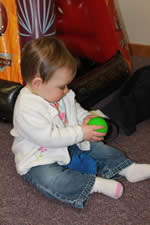WHAT IS APPLIED BEHAVIOR ANALYSIS (ABA)?
Applied Behavioral Analysis is a
- Foundation for teaching new skills and increasing desired behaviors and decreasing unwanted behaviors
- Effective and evidence based interventions
- More than 40 years of research, that has been continuously replicated
- Interventions are based on objective, observable and measurable behavior
- Uses Behavior Modification techniques (reinforcement, prompting, fading,…) to change behaviors
BEHAVIOR ANALYSIS FOR THE LAYPERSON
WHAT IS AUTISM?
Autism is a neurological, developmental disorder comprised of the following:
1. Qualitative impairments in communication skills.
2. Qualitative impairments in social interaction.
3. Restricted repetitive and stereotyped patterns of behavior, interests, and activities, such as repetitive motor movements, unusual sensory responses, and/or unusually strong interests.
Autism is diagnosed by the presence or absence of certain behaviors, characteristic symptoms, and developmental delays early in life, usually prior to thirty months of age. Many children with autism vary in their abilities, behavioral severity, and symptoms. Diagnostic information is gathered through assessment of the child, historical interview with the parent, and direct observation of the child. Early diagnosis and intensive intervention has been proven to lead to improved outcomes in communication, social skills, and behavior problems.
SOME SIGNS OF AUTISM
• Delay in language development
• Fixation on objects, movements (hand flapping, spinning a plate)
• Lack of eye contact
• Lack of interest in people
• Self isolation
• Aggression, Self injurious behavior
Autism Spectrum Disorders – ASD
Autism is a spectrum disorder. Disabilities included in the spectrum:
• Autism
• Pervasive Developmental Disorder-Not other specified
• Rhett’s Disorder
• Childhood Degenerative Disorder
• Asperger’s Syndrome.
EVIDENCE BASED
Children with Autism and ASD can develop skills and lead happy and productive lives when appropriate treatment is provided early in life. Early Intensive Behavior Intervention (EIBI) can increase a child’s overall quality of life and can help teach them to be contributing members of society. EIBI utilizes discrete trial training and verbal behavior therapy.
Although parents of children with Autism and ASD are constantly bombarded by theories one treatment is passing the test of time and research: Applied Behavior Analysis. There is no cure for Autism and children do not just grow out of it; intensive intervention is needed to teach appropriate communication, social skills, and adaptive behaviors.
